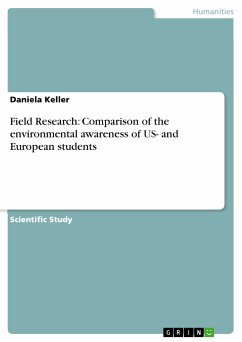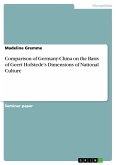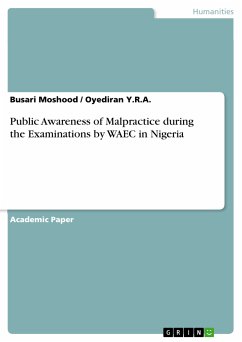Scientific Study from the year 2004 in the subject Sociology - Methodology and Methods, grade: A-, San Diego State University (Sociology), language: English, abstract: Based on 14 qualitative guided interviews, U.S.-American and European students environmental awareness are investigated. The topics concentrated on in the interview guide were values connected with environmental protection and nature, concrete actions, awareness of real and possible consequences of pollution, the fear of them and sources of information. Students from the U.S. as well as from Europe value environmental protection. European students are more concerned about environmental protection and more negative about pollution. A higher concern of European students can especially be manifested when it comes to genetically modified food, of which American students don't have any fear at all. Both groups enjoy being in the nature, American students like camping, European ones like to take a walk or hike. Religion influences European students' values of environmental protection, but not American ones. European students consider recycling more self-evidently and are more likely to buy organic food. American students mention activities like not littering and planting trees, which European students don't mention. American and European students equal each other in terms of thinking that Europe is better in environmental protection than the U.S. and their environmental values having an effect on their voting behavior.
Dieser Download kann aus rechtlichen Gründen nur mit Rechnungsadresse in A, B, BG, CY, CZ, D, DK, EW, E, FIN, F, GR, HR, H, IRL, I, LT, L, LR, M, NL, PL, P, R, S, SLO, SK ausgeliefert werden.









